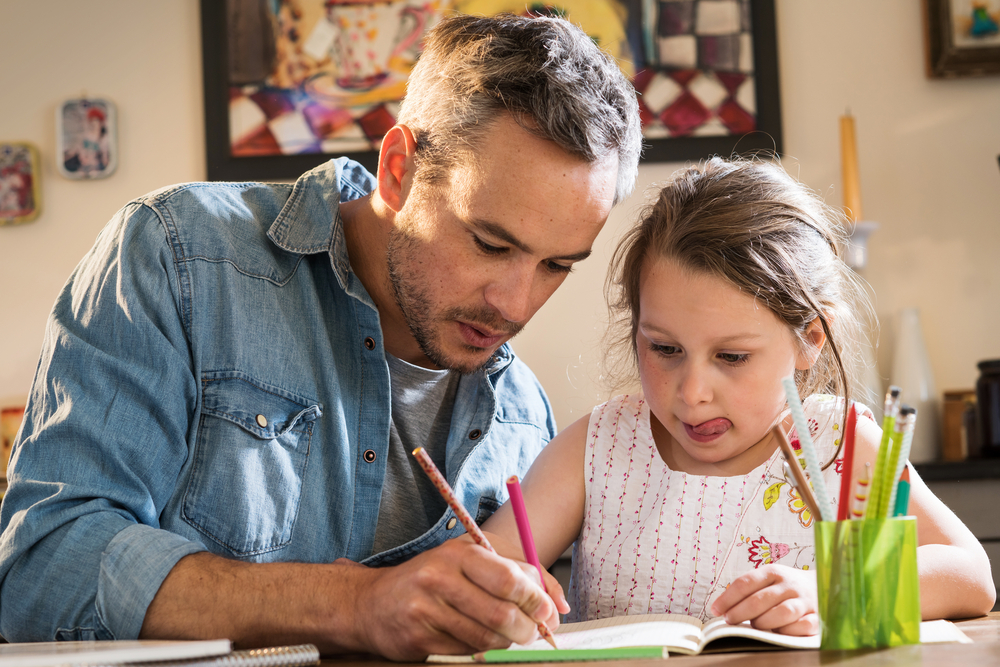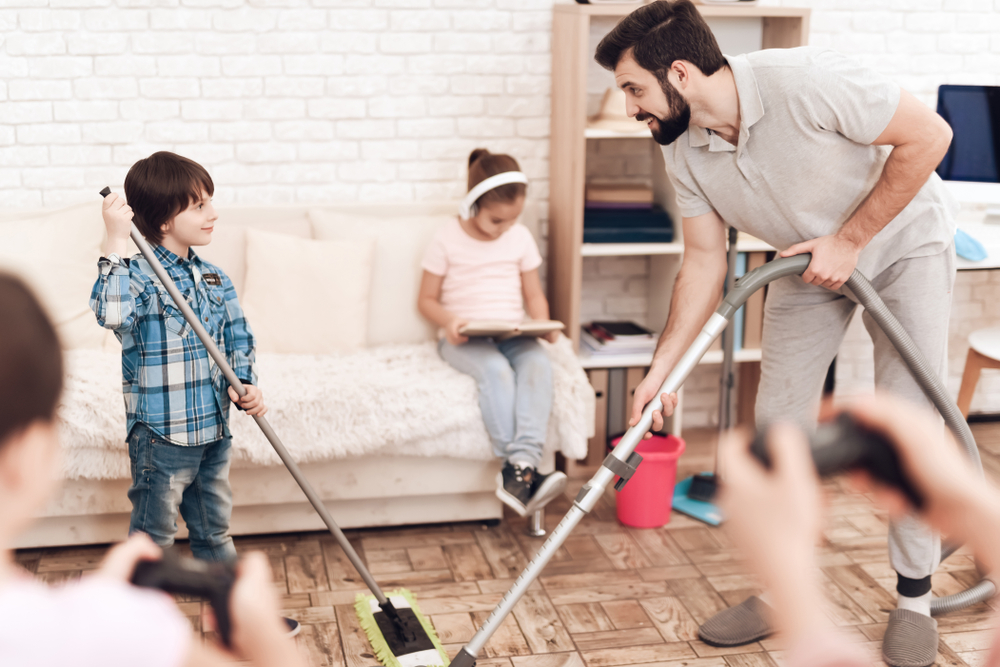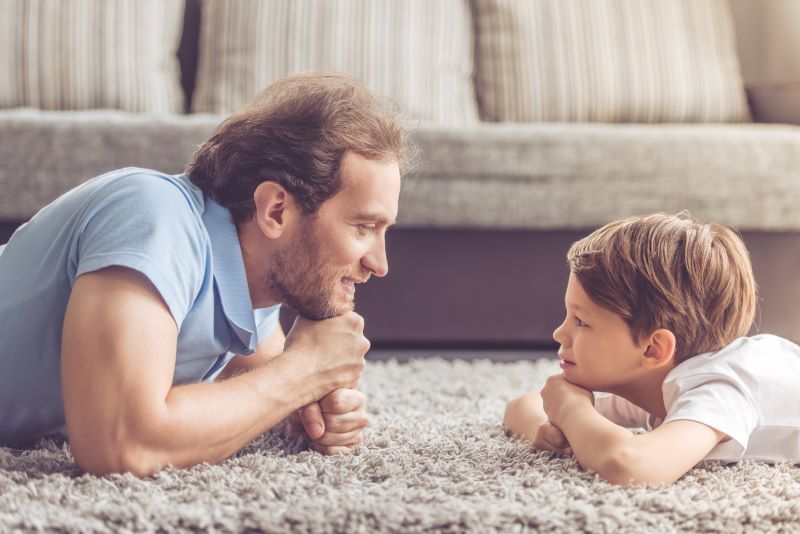

Last Updated on June 30, 2023
What are good habits to maintain?
When asking this question to an adult, the answer seems simple: eat healthy, exercise, get enough sleep, and take care of your finances, right? Well, there’s a bit more to it than just that. We learned about habits and the science behind how and why they form from Farnam Street.
“Th[e habit forming] process within our brains is a three-step loop. First, there is a cue, a trigger that tells your brain to go into automatic mode and which habit to use. Then there is the routine, which can be physical or mental or emotional. Finally, there is a reward, which helps your brain figure out if this particular loop is worth remembering for the future: Over time, this loop—cue, routine, reward; cue, routine, reward—becomes more and more automatic. The cue and reward become intertwined until a powerful sense of anticipation and craving emerges. Eventually… a habit is born.”
Knowing this, the next question becomes “How do we tell the difference between a good and bad habit?”.
Well, besides the obvious bad habits like nail biting, frequently staying up too late, or buying an expensive coffee every day, it can often be difficult to tell which habits aren’t helping you. You may not even notice that you’ve developed a bad habit, and the good ones you tend to forget to give yourself credit for.
Finally we ask, “What are good habits for children to develop early on?”.
For children, things are a little different. They are in a phase of developing many habits, both healthy and unhealthy. They also don’t understand the benefits of creating healthy habits the way you do. You can help them create better habits using this reward system, and you can show your support through developing better habits alongside them.

Now it’s time to train our brains to cycle through this loop for good things. To start, here are some ideas for easy, positive habits that both you and your kids can work on:
They say it takes anywhere from 18 to 254 days to develop a habit, but we at Thinkster like to think about it differently. The human brain is so powerful, and we are completely in control of our own habits, which is why you can form and keep healthy habits, as long as you stay determined.
How can you stay determined? We think the best trick you can try is to pair your habit forming with goal setting. When you have a specific, attainable goal for creating a habit such as eating more fruits and veggies, setting up a specific routine or time of day to eat them can make it feel more permanent in your brain. Also, creating a schedule or plan for the week about which fruits and veggies you’ll eat and how you’ll incorporate them into your meal plan will also help it become a habit. Doing this will help you reach your goal that much faster!

Watch your kids follow in your footsteps as they see you forming better habits, and one day you may see them working hard to develop them on their own as teens and adults.
It’s best to start small with children. After all, they’re constantly absorbing information about the world and about themselves, so you can begin this conversation by pointing out some good habits that they already have.
Do your kids always put their seatbelt on when they hop in the car? Do they keep their room tidy, or always watch out for their siblings? You know your kids, so pay attention to the habits that you admire about them, praise them for it, and go from there.
If your kids are too young to have developed any habits yet, or are more focused on having fun than working on something they deem as unimportant as habits, you can get them started on the right path with a little guidance.
The most basic habits to begin with children are about personal hygiene. Depending on their age, we bet you don’t love cleaning out their boogers or wiping food from their face and hands after every meal. So, the first habit we want to focus on is teaching your children how to take care of their own hygiene. Doing so will help them feel like they are taking care of themselves, takes a (gross) load off of your plate, and can help them later as adults.
The next time you are getting your kids ready for the day or ready for bed, talk with them the entire time. Ask them if they know why we do things like brush our teeth, wash our bodies, and clean out our noses. Teach them how to do these tasks on their own, then praise them for doing a great job!

Next, you’ll need to ask them if they remember the ‘routine’ from the previous day. Make it a game and they’ll latch onto these tasks eagerly. Next time you see them doing tasks on their own, make sure you make a big deal out of it. This is the reward part, and your kids will feel excited that they’re capable of achieving a goal.
Other small rewards you can keep on hand to help kids develop good habits are:
With older kids, simple rewards like this might not work. So, what can you do to help your kids and teens develop great habits that will help them in college and later as adults?
Once your kids get the hang of developing positive habits like teeth brushing, you can start working on bigger and more worthwhile habits.
There’s nothing more positive you can do for your kids than to let them know you trust them. They are their own people and you can show them you trust them by encouraging them to do things without your guidance or management.
Begin with a conversation about goal setting, healthy habits that you personally appreciate about yourself, and some ways they’ve helped you in life. Speaking with them as if they are already adults capable of creating and maintaining their own habits will help them understand their own abilities.

Psychology Today has some great suggestions on how to take action when developing habits. Talk to your kids about this process and let them know that they can do it their way. Do they want to watch TV or listen to a podcast while they exercise? Can you offer them a daily reward for completing homework on time? By increasing their sense of accomplishment with every repetition, the habit will form more easily in their brains.
Try these steps yourself, and apply them to your daily routine to see how you can effect change within your own habits.
Because school is such a huge part of children’s lives, it’s important for them to develop healthy habits that can ensure their future academic success. Attending college can be so much easier for young adults when they’ve already formed habits like completing their homework on time, getting involved in school activities, and pushing themselves to do better in class.
Think of these habits like goals as well.
While healthy habits are important for every aspect of our lives, academic ones can be extra hard for children and teens to care about. Why should a middle schooler worry so much about grades when college is years away? What if they aren’t even interested in attending college?
This is why it’s so important for you to talk with them about habits and goals. It’s about more than just school, it’s about who they want to be. It’s about becoming a better, more-rounded individual, and finding self worth through your own accomplishments.

By showing your support throughout the whole process of habit-forming, you can help your kids reach their goals and enter the world as adults feeling fully capable and in control. While not every child is going to immediately latch onto habit-forming, you can get them any additional help they might need with school by signing them up for online tutoring.
We know you’re raising stellar kids who want to follow in your footsteps, and we know you’re setting a great example for them, so good luck setting your healthy habits together!


